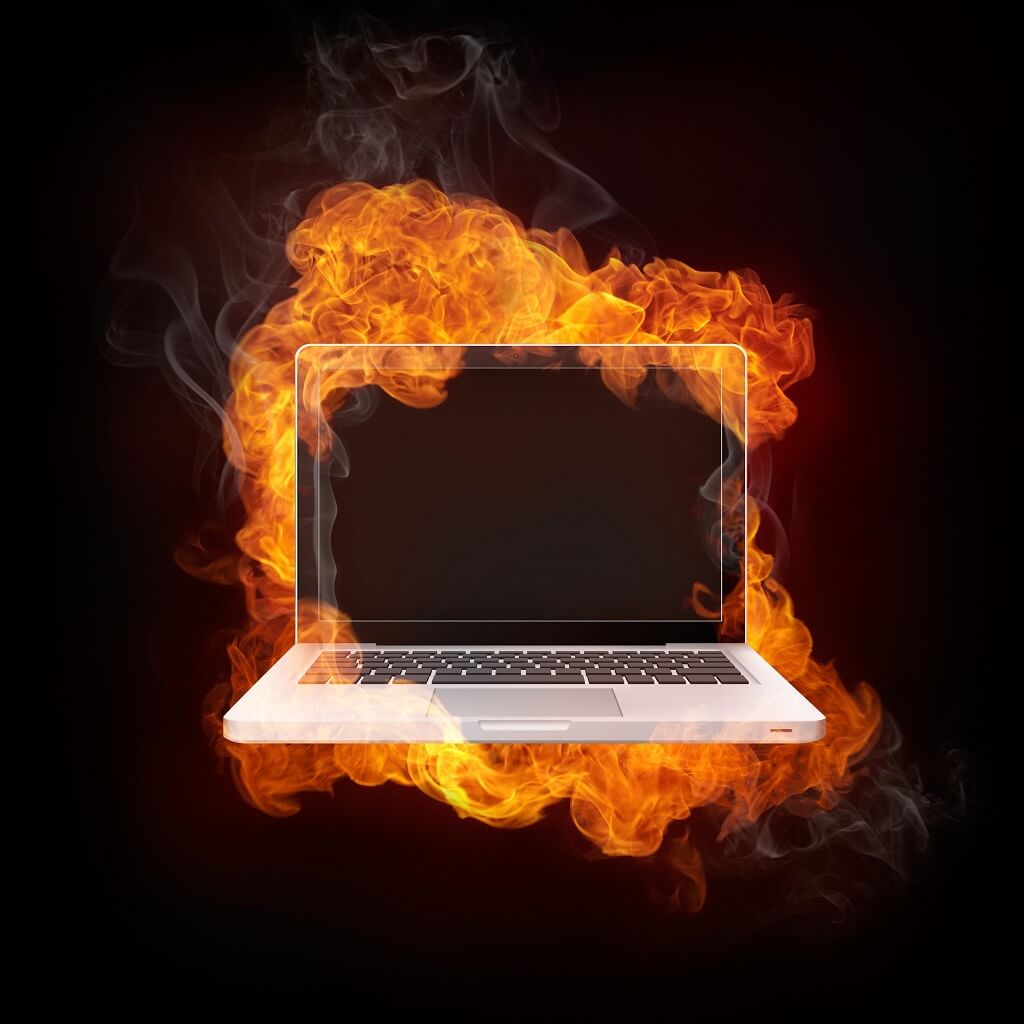Laptop users often complain that their laptop heats too much whenever they kick in some day to day task and always get thought about how to prevent laptops from overheating without causing any more issues.

In this article, we’ll see the most common signs of laptop overheating and possible ways to keep your laptop from overheating.
1. Identify the source of the issue.
Usually, laptops do not heat unless it is affected by some hardware or software issues. Let’s check common software issues first.
- Stop unnecessary background tasks. It is a lack of information that very few of us know what is the background task, and how to manage it. Just look for startup programs and disable unnecessary programs.
- Uninstall unused software or bloatware. Bloatware is the biggest problem that we found on our laptops, our manufacturer has dealt with many software companies so the install their software. But the best thing is you can always uninstall them from the control panel. Make sure you do not install the support apps offered by the brand.
- Update system software and application. Updating the system also fixes the heating issue. Just read the patch notes for more information.
Once you are damn sure about the issue is not from the software side, just have some guts and look on the hardware side.
- Clean the fans. Dirty fans will less effective in cooling the CPU/GPU, if you know that system has run for a long time, better clean the fans.
- Control fan speed. If the above tip didn’t work, try increasing fan speed. You can control the fan speed either from BIOS directly.
If the above all tip didn’t work, then your laptop is incapable of cooling itself or you are doing something. Try some additional tip suggested below.
2. Choose the surface wisely.
Most of us like to use a laptop on our lap (that’s why we call it a laptop) or above cushions if you are more of a relaxing individual. Laptops are compact and slim computer but that too needs a surface to breathe properly but using it on the lap or on cushions we block the ventilation system of the laptops.
Thus, we should use a plain surface and use the laptop on it. You can use a desk, table, or some flat board to enable ventilation more easily.
3. Use a cooling pad.
If the laptop is still unable to cool itself on a surface, then either laptop is old enough for a service/upgrade or it’s not capable of cooling itself sufficiently.
I’m not talking about the service or upgrade at this point, because that’s totally different topic and no one would like to get an expensive solution.
Almost every laptop has an active cooling fan to cool the laptop. But consider the other ways how a laptop heats like – battery, display, storage, etc. These components never cooled with any active cooling fans. Similarly, some laptops are completely fanless, especially the most compact ones like Apple MacBook or Microsoft Surface Pro that does not use any active cooling solution, but such laptops use its body as a passive cooling solution.
Also Read: Do fanless laptop overheat?
Here a cooling pad can definitely do some magic by reducing overheated components from outside. Trust me this works most of the time.
I’ll not recommend any cooling pad here, because any cheaper one will work.
4. You need a serious service.
If the above 2 points didn’t work for you, then you’ll need serious servicing. In some cases you have to upgrade your laptop because technology is getting upgraded and old (ancient) hardware can not handle the new software.
I’ll not recommend an upgrade if the cost of an upgrade is that you can actually buy a brand new laptop. In this case, go for a buyback and exchange deal.
5. Some additional tips to prevent heating.
Let’s discuss some ways to prevent your laptop to become a heating machine.
- Avoid any extreme exposure to direct hot sunlight, especially during the summer season. High temperatures may cause a laptop computer to overheat and this could lead to internal device failure.
- Use laptop inside an air-conditioned, clean, and dust-free room.
- Efficiently manage the tasks on the laptop, avoid opening too many apps at once, and often clean unnecessary mess collected on desktop.
- If you can, or your workflow allows you to use Linux OS, use it. There are many Linux distributions to choose from. Distros like Debian, Ubuntu, Mint, CentOS, Fedora, Pop! OS, Manjaro, etc. widely used by users.
That’s it, overheating of a device like a laptop should not be avoided in any case. Because overheat can lead to any internal failure that can damage the batteries or hard drive where you keep all the sensitive data.
For data safety, always make backups of your sensitive data in some external storage source like – external hard drive or network-attached storage drive.
So try to fix the heating issue as soon as possible.
Leave a Reply